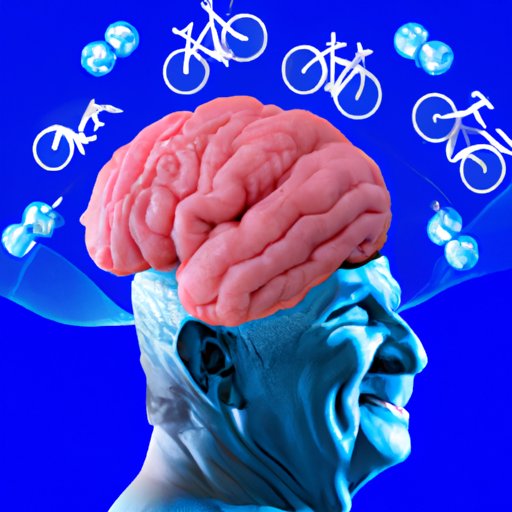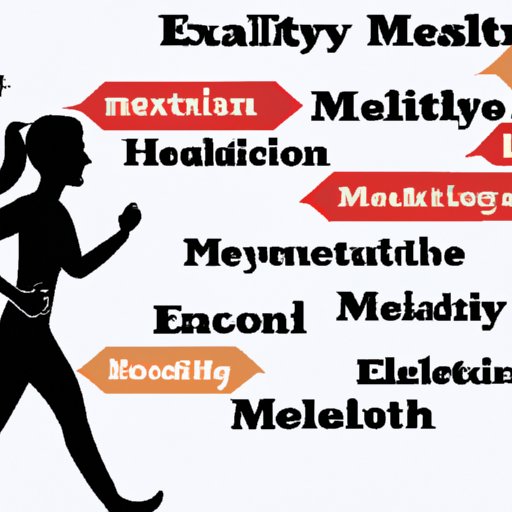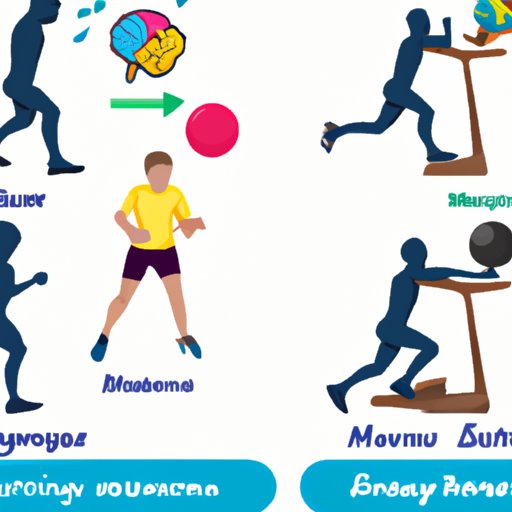Introduction
Exercising is an essential part of a healthy lifestyle, and it’s no secret that physical activity has numerous benefits for both the body and mind. But what exactly are the neurobiological benefits of exercise? In this article, we will explore how exercise affects the brain, examining the positive effects of physical activity on cognitive performance and brain health.
Exploring the Neurobiological Benefits of Exercise
Exercising provides numerous neurobiological benefits that can improve cognitive performance and brain health in both the short and long term. In order to understand the effects of exercise on the brain, it’s important to examine how physical activity impacts both cognitive performance and brain health.
How Exercise Improves Cognitive Performance
Studies have shown that exercise increases the production of neurotransmitters, such as dopamine, serotonin, and norepinephrine, which are responsible for regulating mood, memory, and attention. This means that regular physical activity can improve cognitive performance in the short term by increasing focus and concentration. Additionally, exercise can also help improve working memory, which is the ability to store and quickly recall information.
In the long term, regular physical activity can help to reduce the risk of developing age-related cognitive decline, as well as improve overall cognitive performance. Studies have found that regular physical activity helps to increase the size of the hippocampus, the part of the brain responsible for memory and learning, resulting in better cognitive performance over time.

Examining the Effects of Exercise on Brain Health
In addition to improving cognitive performance, exercise can also have beneficial effects on brain health. Regular physical activity has been found to reduce the risk of developing Alzheimer’s disease and other forms of dementia. It can also help to improve mental health, reducing symptoms of depression and anxiety.
Exercise can also help to reduce stress levels, as well as increase resilience to stress. Studies have found that regular physical activity helps to reduce the release of cortisol, a hormone released in response to stress, which can have a detrimental effect on brain health over time.

The Role of Exercise in Cognitive Performance
Regular physical activity can also help to improve memory and attention. Exercise increases the blood flow to the brain, delivering oxygen and nutrients that can help to improve cognitive performance. Additionally, studies have found that regular physical activity can help to improve the connections between neurons, resulting in improved memory and attention.

Investigating the Impact of Exercise on Mental Health
Regular physical activity has been found to have a positive impact on mental health. Exercise can help to reduce symptoms of depression and anxiety, as well as increase resilience to stress. Additionally, studies have found that regular physical activity can help to improve sleep quality, which can have a positive effect on mental health.

Understanding the Link Between Exercise and Stress Resilience
Exercise can help to reduce stress levels by decreasing the release of cortisol, a hormone released in response to stress. Additionally, regular physical activity has been found to increase the release of endorphins, hormones that can help to reduce stress and improve overall wellbeing.
Examining the Relationship Between Physical Activity and Learning
Regular physical activity can also have a positive effect on learning and academic performance. Studies have found that exercise can help to improve concentration and focus, as well as increase working memory. Additionally, exercise can help to reduce stress levels, resulting in improved learning and academic performance.
Conclusion
There are numerous neurobiological benefits of exercise, including improved cognitive performance and brain health. Exercise can help to improve memory and attention, as well as reduce symptoms of depression and anxiety. Additionally, regular physical activity can help to increase stress resilience and improve learning and academic performance.
In order to maximize the benefits of exercise on the brain, it’s important to incorporate physical activity into daily life. Aim for at least 30 minutes of moderate-intensity exercise a day, such as walking, jogging, or swimming, to reap the full benefits of exercise on the brain.
(Note: Is this article not meeting your expectations? Do you have knowledge or insights to share? Unlock new opportunities and expand your reach by joining our authors team. Click Registration to join us and share your expertise with our readers.)
